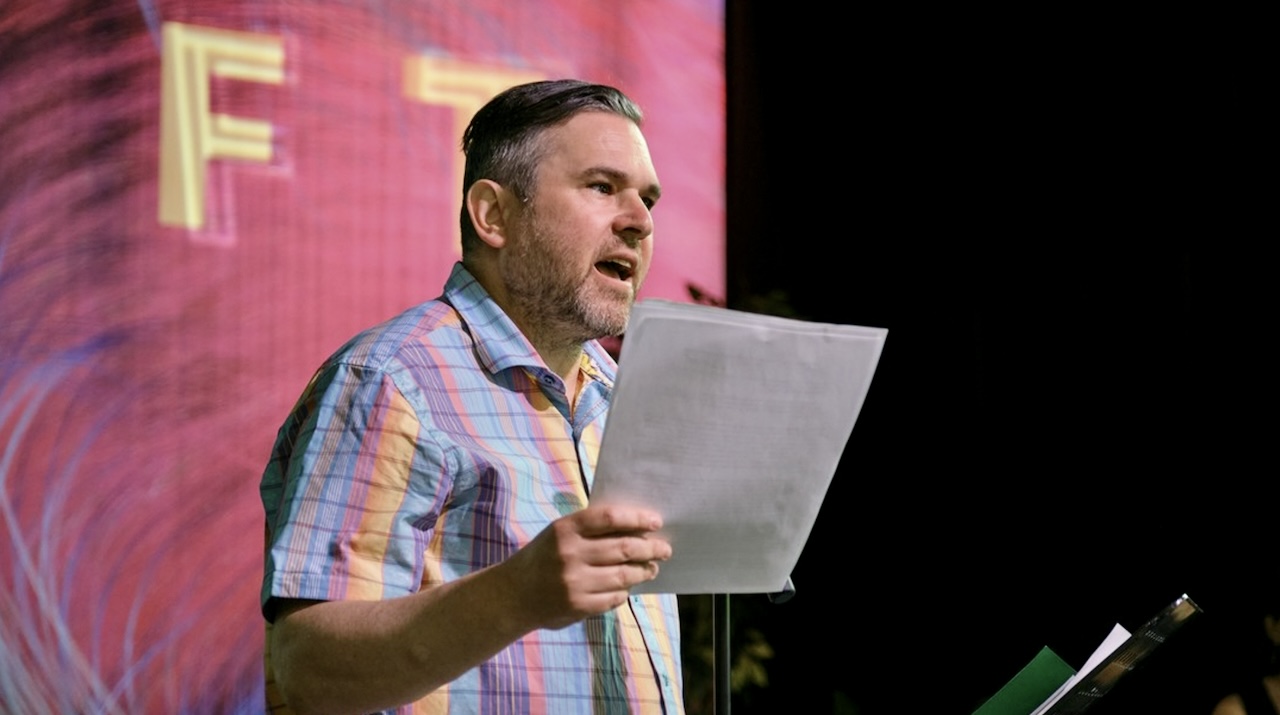It’s hard to read Jacob Wren’s latest novel, Dry Your Tears to Perfect Your Aim, without thinking of Palestine.
In an interview, Wren agrees, but clarifies that, for him, the thinking for this novel really started in 2019. And while bad things were happening then too, of course, it is hard not to feel particularly overcome thinking about the many international events that have followed.
Set in an unnamed war-ridden territory, readers follow a western (and likely white) narrator as he navigates his existential qualms amidst the backdrop of bombs. It is a book full of discussions. Nearly every page has a question. Readers will feel the need to interpret our narrator’s impulse to flee to this warzone as some sort of moral sanctity, but he himself is quick to correct any such assumptions. Existentialism being a privilege in and of itself — to question the meaning of one’s existence implies that one’s existence is secure enough to add meaning to, a thing that is hard to do when you’re trying to stay alive in the first place.
Wren marks the early seeds of this novel around America’s “Shock and Awe” campaign as they commenced their invasion in Iraq in 2003. “They bombed, mercilessly and constantly,” says Wren. “And, it just felt so violent and insane to watch that happening on television. All these people protested the thing and then the thing happened anyway. It kind of makes me feel insane to feel like that’s the world I live in. And my first impulse was: I want to go there, even though that makes no sense and would help no one.”
Wren’s narrator, too, is overwrought with helplessness. He’s in awe of the perseverance of the local people he encounters and the deterministically relational society its survivors attempt to build from the ruins of its native nation. This is what I mean when I say this book is full of conversations. It’s a novel made up of vignettes of actual discourse. And what’s more, those Indigenous to the land feel no such awe in their own tenacity. For them, the need for survival and betterment is just a given. It made me wonder: Could it be that optimism was in fact just… realistic?
“At one point in the book, the narrator (refers to) a practical utopia,” says Wren. “I think maybe one way that the utopia in my book differs from other utopias is that it’s not actually that utopian. It’s maybe just a little bit better than what we currently have. It’s not, you know, miraculously better in every way. Anything you can do that might improve someone’s life or help people who are oppressed is worth doing, even if it’s not a miracle.”
On p. 25, Wren has the narrator reflect something that, to me, reads as a tragically pure Wren sentiment: “And why must I view all works of art through my political desires?”
“Yeah,” Wren admits, “I would say this protagonist is the character that’s closest to myself that I’ve ever written. It’s me imagining myself in a place that’s more politically hopeful than where I currently live.” And, “Yes,” he continues, “all my work is about the relationship between art and politics. That is definitely true. And that relationship is enormously complex and full of doubt and confusion.”
“In some deep way, I feel I need to be an artist. I have no choice,” say Wren. “But I don’t actually think what the world needs right now is art. I think it needs activism and it needs people who are really able to get out there and fight. I think art can maybe do something, but it’s not the primary driver of change. I think art is probably more a reflection of the world than driving change in the world.”
“But nonetheless, since I need to be an artist and art is the main thing I’m able to do, I need to think, you know, what kind of art is most politically helpful? What kind of art would be most meaningful for me politically? I feel injustice, so if the only band-aid I have to put on that pain is art, I have to make the most of it even though it’s deeply insufficient.”
Citizens, readers, and most likely peers of Wren, who are doom-scrolling as we speak, will feel reignited by Wren’s capsule of self-doubt. After all, we are all interrogating ourselves with these very questions: What can I do? How can I be of help? And what is the meaning of art? Though Wren never claims to answer anything here, he has written a book that at least reminds us that the point of questioning has never been the answer. The point has always been to ask. ■
For more on Jacob Wren, please visit his Instagram. This article was originally published in the Dec. 2024 issue of Cult MTL.
For our latest in Montreal art, please visit the Arts & Life section.


